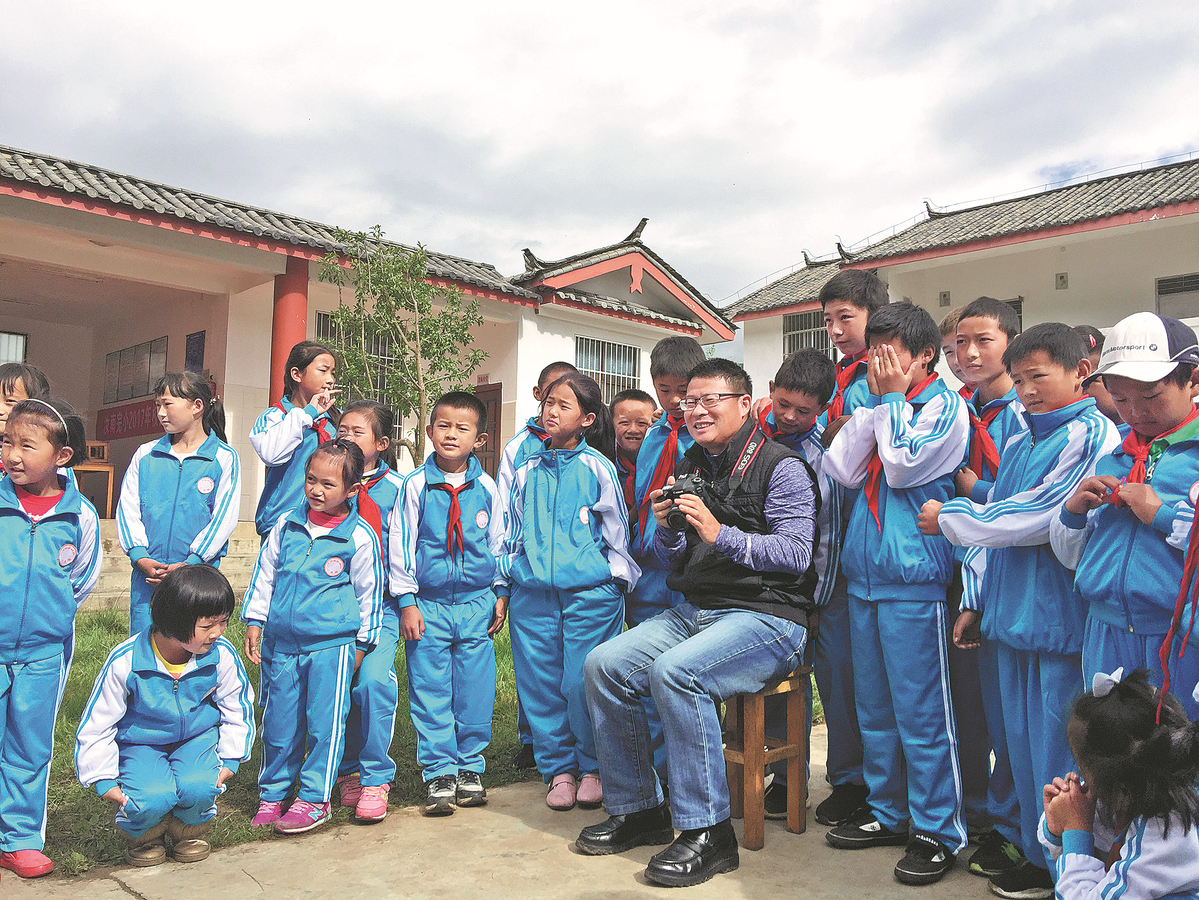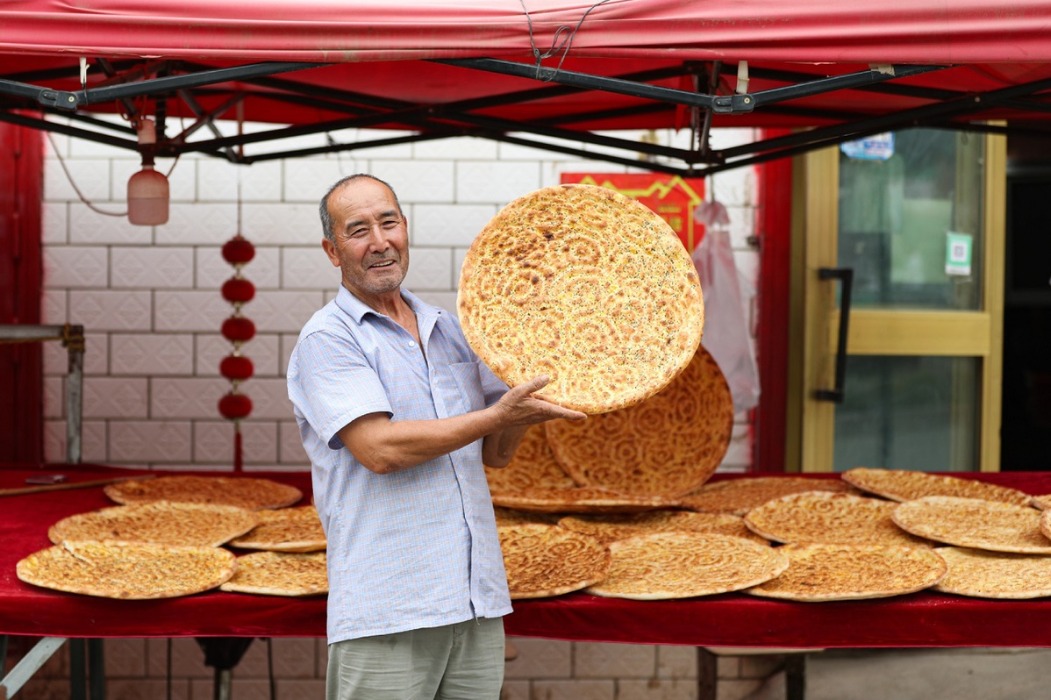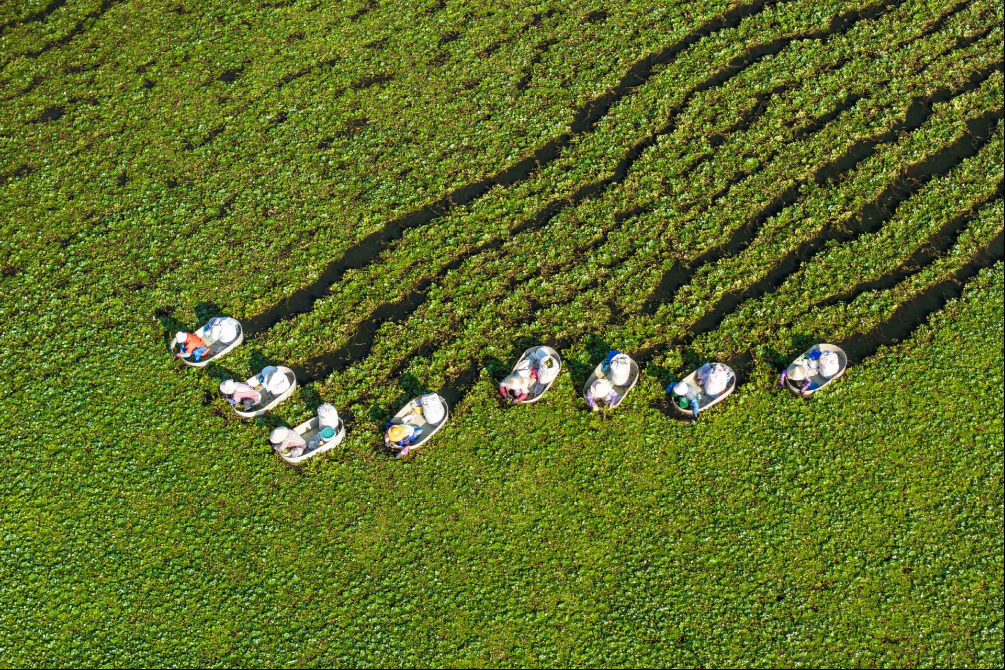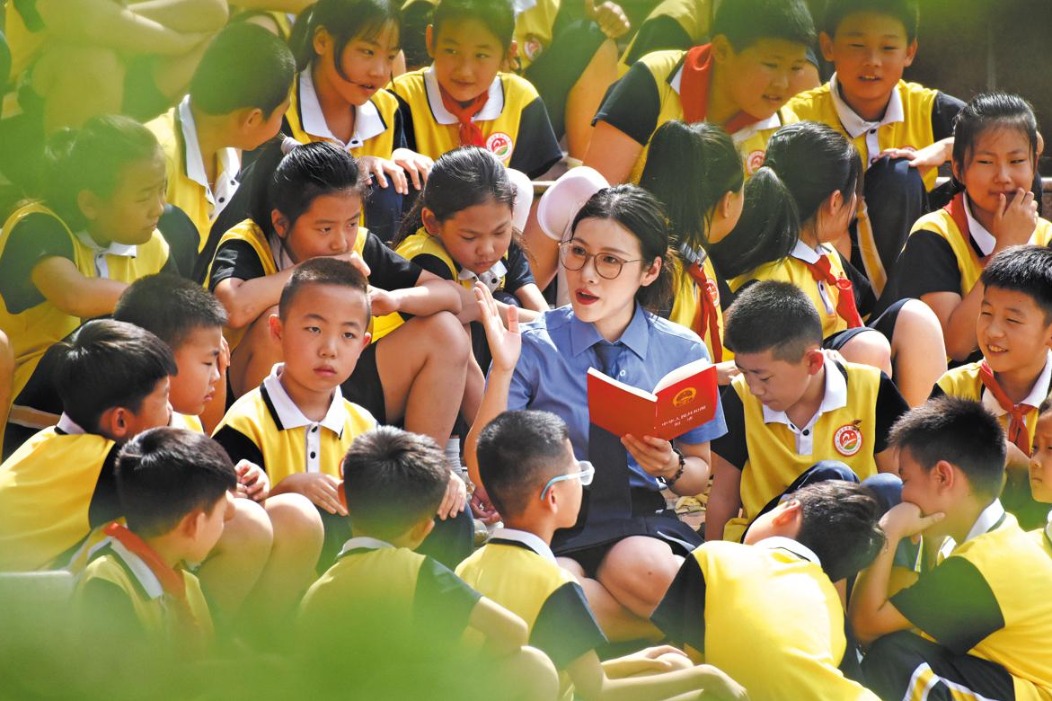Building a healthier future for rural kids


Doctor's charitable project has helped end students' malnourishment in Yulong county
As a doctor specializing in nutrition, Bian Huawei did not expect that a random stop at a school in Yulong Naxi autonomous county in Yunnan province 14 years ago would steer him toward a 4 million yuan ($548,600) charitable cause.
In 2009, he visited Runan Primary School at lunchtime while on a tour of the county commissioned by the China Foundation for Poverty Alleviation to assess whether children were getting adequate nutrition.
"I went to look at the students. I had become a father not long before," said Bian, director of the clinical nutrition department of the Third Affiliated Hospital of Sun Yat-sen University in Guangzhou, Guangdong province.
He returned to the school at dinnertime and again the next day. Apart from rice, potato dominated the students' diets. Bian learned that the students ate only a small amount of vegetables and meat, which were available on Tuesdays and Thursdays.
Located in a mountainous area more than 3,000 meters above sea level, the county has limited sources of water and income.
On that visit, Bian bought a whole pig for about 1,000 yuan for the students and school staff to eat.
In 2010, Bian revisited the school and funded fresh meat purchases for the entire school year.
The next year, he signed an agreement with the county's education bureau to supervise meat purchases with his funding. The terms included supplying no less than 150 grams of fresh meat for lunch for each student on Mondays, Wednesdays and Fridays. In autumn of that year, a nutrition enhancement plan for rural students during their mandatory education period was launched by the government nationwide.
Bian expanded his support to cover more primary schools in the county and provide free breakfasts, lunches and dinners for students, supplementing the government funding with his donations.
He also offered professional advice on how to improve the diets of the students using available resources. In the streams under the mountains, for instance, there were plenty of shrimp and fish. He told teachers to use these resources to give the students protein on a regular basis.
In 2011, Bian also funded the establishment of greenhouses at the schools to provide students and teachers with more varieties of vegetables. Water storage facilities used by the greenhouses were funded by other charitable organizations.
Donations from Bian's organization have been used to buy refrigerators for schools, upgrade school kitchens, provide support for four primary schools and purchase clothes for students.
Total spending so far has exceeded 4 million yuan, said Zhao Shufang, former chief of the county's hospital for women and children, who serves as the liaison for Bian's charitable project.
Bian has been joined by 20 of his friends, six of whom have been engaged in the charitable work from the beginning. Most of them have visited the schools they have helped. Bian has visited the schools at least twice a year since the project began, except during the COVID-19 pandemic. The donations have resulted in significant improvements in the students' health, Zhao said.
The developmental delay rate was halved to 14.4 percent among Runan Primary School students a year after the project was initiated. Two to three years later, no malnutrition was detected among the students. The parents are grateful that their children are eating better food at school than they are at home, she said.
Over the years, most of the school buildings and facilities have been rebuilt or renovated with the government funding. Despite the progress, Bian believes children's health still deserves people's attention.
"Children's growth before puberty is very important. If they are not healthy at this stage, it will become problematic going forward," he said.
Bian takes pictures of each student when he visits and gives them the photos the next time he visits. "Every time I go, the children don't know my name. They just know there is this uncle who's helping them. They take pictures with me and happily play with me. I feel proud," Bian said.
"There was one little girl who was shy. I took pictures of her every year starting in 2010 until she graduated from primary school. Every time I went there, she told her teacher she wanted to take pictures with me. This is rewarding to me."
Bian's charitable deeds were not known until early this year. He was awarded the title "Good Person of Guangdong" by provincial authorities this year.
Wang Han contributed to this story.





































